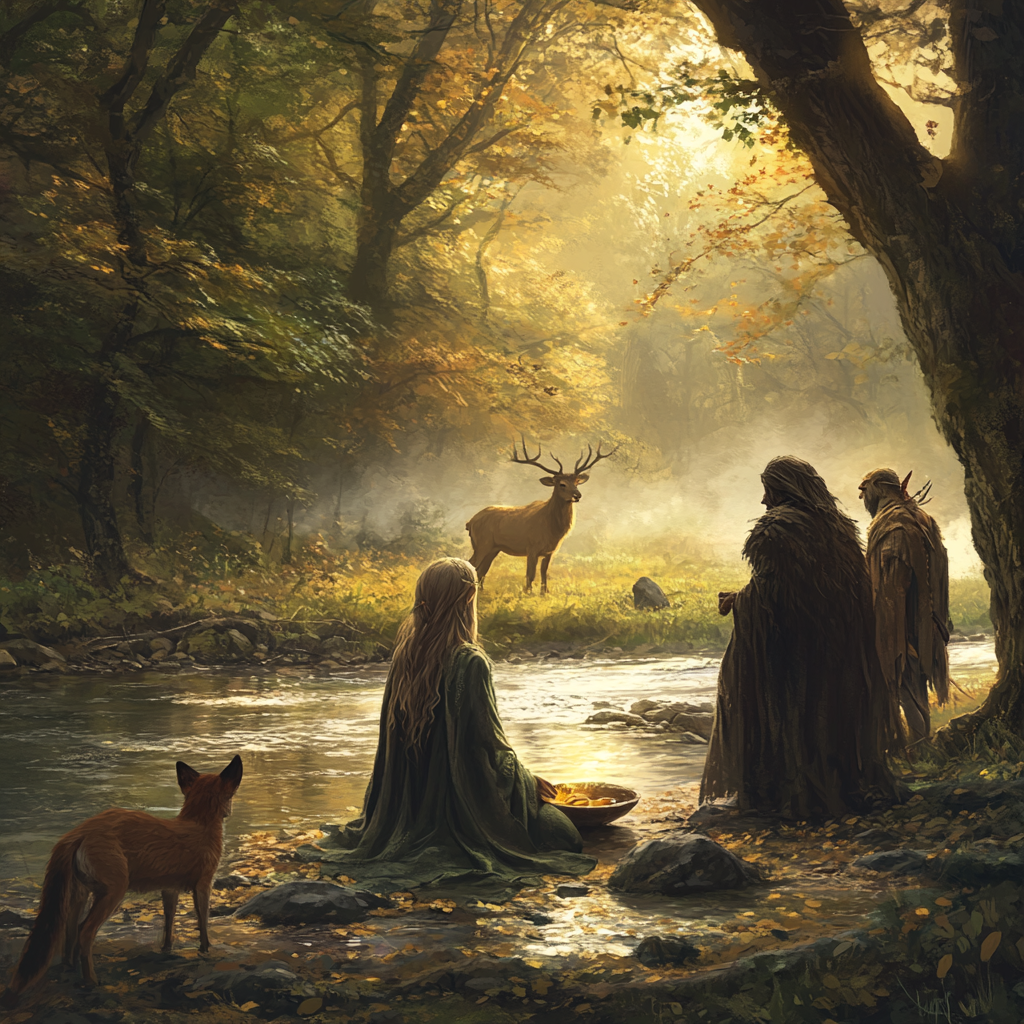17 Hithui (November), Third Age 2581
The sound of the river Anduin was especially strong that morning. Its waters bold, tumbling over stone and root as if stirred by something deeper than the current. I had been tending to Radagast’s garden before dawn when the wild birds arrived in a flurry of wings, disturbed and anxious, their songs cut short. Creatures from the north were moving south, fleeing something, yet the danger was not orcs or wolves. It was unrest among the Free Peoples themselves.
The Beornings, stout-hearted folk of the Vale, had begun driving back herds of elk and wild boar from riverbanks they once shared. The creatures were becoming restless, and in turn, the forest stirred uneasily. Radagast, ever attuned to the balance of things, bid me go and listen, not with words alone, but with patience.
So I came to a wide bend in the Anduin, where flat stones jutted like the seats of an unspoken council. There I waited, listening to the language of the river and the whisper of trees.
By midmorning, I was no longer alone. A pair of Beornings approached, broad-shouldered and clad in fur with expressions cautious, but not hostile. From the eastern bank, an aged elk emerged from the trees accompanied by a skittish family of boars and a pair of red foxes.
I did not speak first. Instead, I laid down fresh rivergrass and a bowl of honey at the stones. Gesture, not command, is how one soothes distrust in the wild. The Beornings watched silently as the animals cautiously approached. It was the elder Beorning who broke the silence.
“You walk with Radagast, elf. We know your scent. You tame the sharp-fanged.”
I bowed my head. “And listen to the wind between words. The balance is breaking. You have seen it.”
The younger Beorning frowned. “They’ve come too close to our fields. We cannot have beasts stampeding through cropland.”
The old elk snorted, a low, resonant sound. I did not speak for him. Instead, I spoke to them all.
“The river is not a fence. It is a thread that binds us. The creatures move because they sense discord, the shadow that still lingers in broken roots and darkened glades. If you push them further, they will not run. They will turn. And what begins with hoof and claw ends with fire and sorrow.”
There was quiet after that. Even the river seemed to pause.
We spoke for hours—not of dominion or claim, but of harmony. I shared maps of nearby glades better suited for the animals’ needs, and promised to guide them myself. In return, the Beornings would leave the eastern banks untroubled, and build markers to remind their kin of the agreement. The elk lowered its head in acceptance, and the foxes scattered playfully as if sensing the tension had eased.
When I returned to Rhosgobel that evening, Radagast was waiting beside the garden with a knowing smile. “Sometimes,” he said, plucking a leaf from his sleeve, “it is not might, but stillness, that keeps the world from fraying.”
The council among the river stones was not written in ink or sealed by kings, but it held all the same—carried by current, rooted in the earth, remembered by those who listen.
